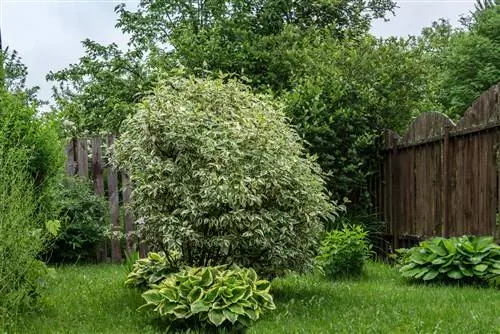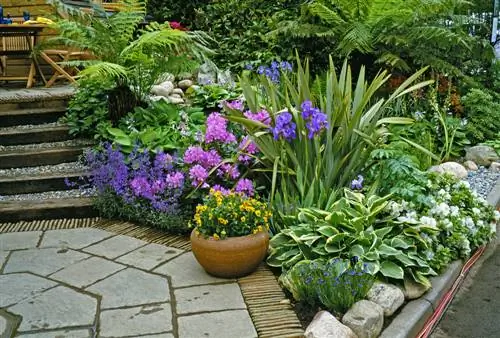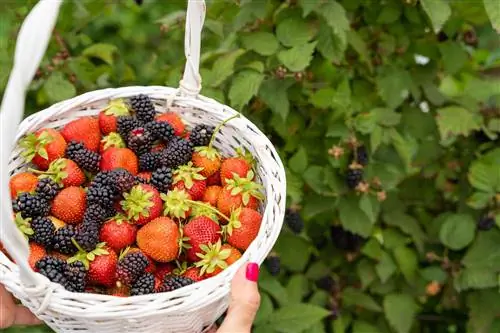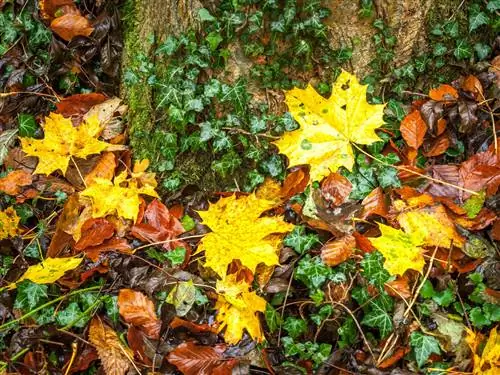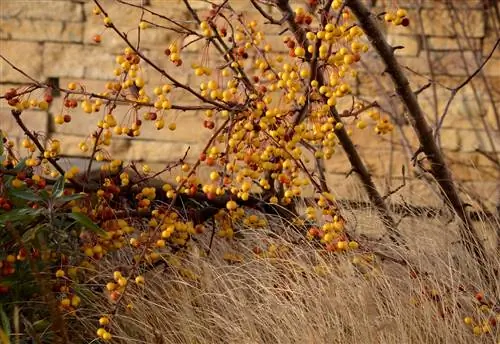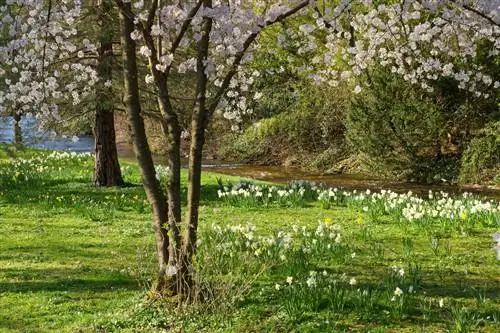- Author admin leonars@hobbygardeners.com.
- Public 2024-01-07 16:36.
- Last modified 2025-01-23 11:22.
Due to its shallowly spread roots, the dogwood does not cope well with heat and drought, but relies on regular watering. Underplanting can help cool the root zone while retaining moisture in the soil for longer.
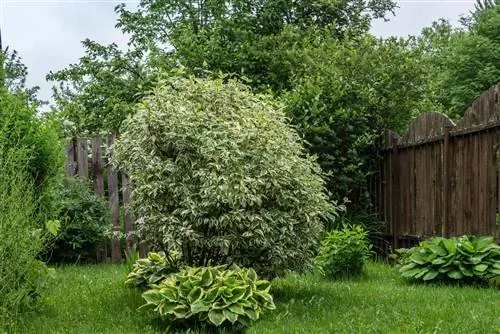
Which plants are suitable for underplanting dogwood?
Numerous perennials, ground covers, grasses, but also bulbous flowers that can cope withpartially shaded to shadysite conditions and are no larger than40 cm are suitable for underplanting the dogwoodare. They fit in perfectly below:
- Foam blossom or memorial
- Periwinkle or ivy
- Sedges or bearskin grass
- Tulips or daffodils
Planting dogwoods with perennials
Perennials that are consideredshade tolerantcan be found at the base of the dogwood. However, it is not just their compatibility with lighting conditions that is crucial. They should also remainshallow rootedandsmall. Assertiveness is also required, as Cornus tends to crowd out weaker plants.
Decorative foliage perennials go just as well with dogwood as flowering perennials. If you want to beautifully highlight the white flowers of the dogwood, choose perennials for underplanting that also bloom white. Here is a selection of suitable underplantings:
- Funkia
- Purple bells
- Forest Lily
- Foam Blossom
- Spotted Lungwort
- bleeding heart
- porcelain flowers
- Bergenia
Planting dogwoods with ground cover plants
Many ground cover plants are undemanding, tolerate drought and thrive effortlessly in partial shade to shade. Such specimens are ideal for planting under the dogwood. They stay low andcover its root area with their dense leaf growth. Excellent options include:
- Ivy
- Evergreen
- Storksbill
- Evergreen creeping spindle
Underplanting dogwoods with grasses
Frugal grasses that anchor themselves flat in the ground and aremaximum knee-high can also be used as underplanting for the dogwood. However, they should ideally be placed in the ground when the dogwood is also planted. In addition, it is important that the grasses do not place high demands on lighting conditions. Matching items are:
- Forest sedge
- Mountain sedge
- Bearskin Grass
- Dwarf sedge
- Gold-edged sedge
- Colorful Japanese sedge
Planting dogwoods with bulbous flowers
An underplanting of onion flowers is ideal for Cornus, both in the bed, in a hedge or even in the meadow. Youbenefitfrom the still goodlight conditions in spring However, sometimes the dogwood dislikes such underplanting and the bulb flowers are actually driven away. Nevertheless, it's worth a try with:
- Tulips
- Daffodils
- Snowdrops
- Lily of the valley
Planting dogwood in the pot
Especially in the pot, there is a risk for the dogwood - regardless of whether it is red dogwood, white dogwood or flower dogwood - that thesoil will dry out too quickly Since it does not like drought, We recommend planting under the pot using ground cover plants or low, densely growing perennials. You are therefore welcome to use one of the following plants for underplanting:
- Memorial
- Storksbill
- Small Periwinkle
- woman's coat
Tip
Protect from drying out and heat without underplanting
To protect a dogwood from drying out and heat in the root area, even without underplanting, you can also use a layer of mulch. You should refill these regularly. For example, mulch made from bark, grass clippings or reeds is suitable for the dogwood.

